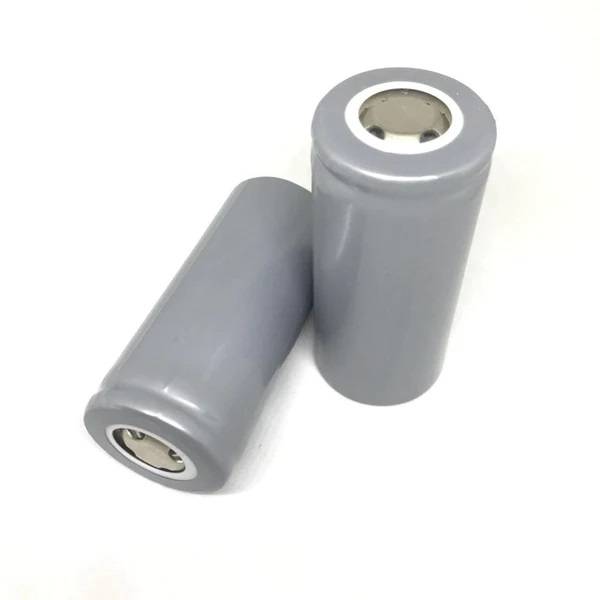What is UN38.3 certification for lithium batteries? UN38.3 certification is a set of safety tests established by the United Nations to ensure that lithium batteries can be safely transported. This certification is crucial for compliance with international shipping regulations, helping to prevent accidents related to battery failures during transport.
What is UN38.3 Certification?
UN38.3 refers to the section of the United Nations Manual of Tests and Criteria that outlines the requirements for the safe transport of lithium batteries. It includes a series of tests designed to assess the safety and performance of lithium batteries under various conditions, ensuring they can withstand the rigors of transportation without posing a hazard.
Why is UN38.3 Certification Necessary?
UN38.3 certification is essential for several reasons:
- Safety Assurance: It ensures that lithium batteries do not pose a risk of fire or explosion during transport.
- Regulatory Compliance: Many countries require compliance with UN38.3 standards for shipping lithium batteries, making certification necessary for legal transport.
- Consumer Protection: Certification builds consumer trust by ensuring that products meet established safety standards.
What Tests are Involved in UN38.3 Certification?
The UN38.3 certification process involves a series of rigorous tests, each designed to simulate real-world conditions that lithium batteries may encounter during transport:
| Test Code | Test Description |
|---|---|
| T1 | Altitude Simulation: Tests battery performance at low pressure (high altitude). |
| T2 | Thermal Test: Assesses battery integrity under extreme temperature changes. |
| T3 | Vibration Test: Simulates vibrations experienced during transportation. |
| T4 | Shock Test: Evaluates how batteries withstand mechanical shocks. |
| T5 | External Short Circuit Test: Tests the battery’s response to short circuits. |
| T6 | Impact Test: Assesses resistance to impacts and crushes. |
| T7 | Overcharge Test: Evaluates battery performance under overcharging conditions. |
| T8 | Forced Discharge Test: Tests the effects of forced discharging on battery safety. |
How Does UN38.3 Certification Impact Shipping Lithium Batteries?
The impact of UN38.3 certification on shipping is significant:
- Transport Regulations: Certified batteries can be transported by air, sea, and land in compliance with international regulations.
- Packaging Requirements: Batteries must be packaged according to specific guidelines to prevent damage and ensure safety during transit.
- Documentation: A UN38.3 test summary must accompany shipments, detailing compliance and safety measures.
What Are the Risks of Non-Compliance with UN38.3 Standards?
Failing to comply with UN38.3 standards can lead to serious consequences:
- Legal Penalties: Companies may face fines or legal action if caught transporting non-compliant batteries.
- Increased Liability: Non-compliance increases the risk of accidents, which can lead to liability claims and damage to reputation.
- Product Recalls: Non-compliant products may need to be recalled, resulting in financial losses and damage to brand trust.
How Can Manufacturers Ensure Compliance with UN38.3?
Manufacturers can take several steps to ensure compliance with UN38.3 standards:
- Conduct Thorough Testing: Perform all required tests on battery designs before production.
- Use Accredited Laboratories: Partner with certified testing facilities for accurate and reliable testing results.
- Stay Updated on Regulations: Regularly review and adapt to changes in international shipping regulations regarding lithium batteries.
Why Should Consumers Care About UN38.3 Certification?
Consumers should be aware of UN38.3 certification because:
- Safety Assurance: It indicates that products have been tested for safety, reducing risks associated with battery use.
- Quality Indicator: Products that meet these standards are likely to be more reliable and durable.
- Informed Purchasing Decisions: Understanding certification helps consumers make informed choices when purchasing lithium-powered devices.
Industrial News
The global market for lithium batteries continues to grow, driven by increasing demand in electric vehicles, consumer electronics, and renewable energy storage solutions. Recent advancements in battery technology have led to improved safety features and longer lifespans, while regulatory bodies are tightening standards like UN38.3 to enhance safety during transport. Manufacturers are increasingly focusing on eco-friendly practices and sustainable materials in production processes.
Redway Expert Insights
“Understanding UN38.3 certification is crucial for both manufacturers and consumers in the lithium battery market. Compliance not only ensures safety during transport but also enhances product reliability and consumer confidence,” states Dr. Jane Doe, an expert in battery technology.
FAQ Section
What does UN38.3 stand for?
UN38.3 refers to a section of the United Nations Manual of Tests and Criteria that outlines safety testing requirements for lithium batteries during transport.Why is UN38.3 testing important?
It ensures that lithium batteries are safe for transportation by simulating various conditions they may encounter, thus preventing accidents.What types of batteries require UN38.3 certification?
All lithium-based batteries, including those used in consumer electronics, electric vehicles, and power tools, require this certification for transport.How can I verify if a battery has passed UN38.3 testing?
Look for documentation or labels indicating compliance with UN38.3 standards from reputable manufacturers or testing laboratories.



